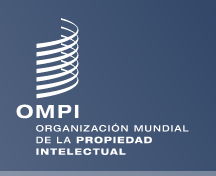Once again, a delegation of Fundación Vía Libre will participate in the World Intellectual Property Organization’s Copyright and Related Rights Committee Meeting in Geneva, Switzerland.
Our organization is accredited as Observer to WIPO since 2007 and participates in the International Alliance for Access to Knowledge Coalition, a coalition of organizations working in areas such as copyright flexibilities and exceptions as well as in the intellectual property debate in general.
The Copyright and Related Rights Committee will meet between Monday 13 March and Friday 17 March. The core agenda items to be considered are:
– A new draft of the Broascasting Treaty.
– The African Group’s proposal to extend a programme of Exceptions and Limitations.
– A toolkit for preservation in the framework of cultural institutions.
As always, the SCCR meeting gathers not only government delegates but also private sector organizations, civil society and other accredited stakeholders in the process.
Progress on the Broadcasting Treaty
This long-standing process remains one of the most complex and problematic on WIPO’s agenda. The idea of promoting a new treaty for broadcasting organisations has been on the agenda for more than two decades. However, its promoters have not yet achieved the minimum consensus needed to bring the text to an international conference to ratify it and give it its final form. This is good news, because the Broadcasting Treaty poses a threat to access to culture and knowledge by creating a new layer of rights with unpredictable risks and impacts.
First of all, the current draft treaty contains a number of conceptual ambiguities about the mere definition of a beneficiary legal person, a broadcaster, since by trying to be “neutral” in technological terms, it leaves the door open to a number of actors who perform internet streaming and other forms of communication to the public. This lack of precise and tight definitions generates uncertainty about the real scope of such a treaty and its impact on freedom of expression and access to culture, especially in the internet sphere. The definitions, scope and duration of these rights integrated into the pact are problematic, lacking in precision and ambiguous in their conception. In turn, the section on flexibilities included in the draft is the most restrictive of the frameworks proposed so far by WIPO.
Fundación Vía Libre and the A2K coalition oppose the advance of this treaty because we consider it unnecessary for the proposed purposes and dangerous from the point of view of access to information, culture and freedom of expression.
